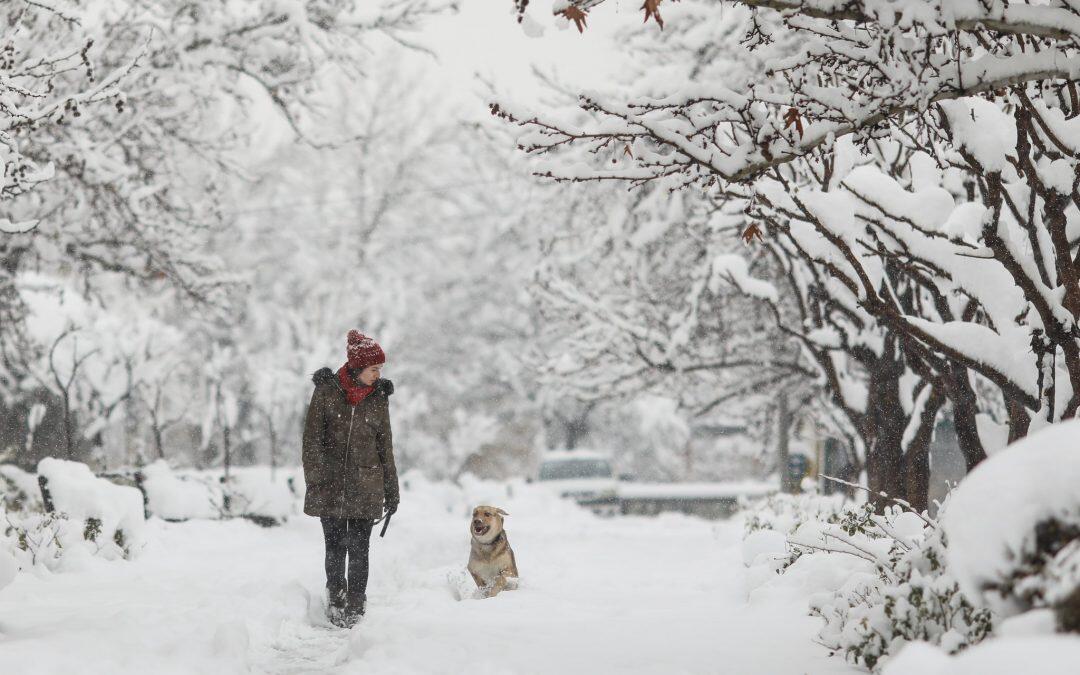TEHRAN — Some had started praying for rain. Others were thinking about migrating. The mountains towering over the city were bare and brown, deprived of their usual winter dusting of snow.
A full-blown water crisis is drying out Iran, much to the concern of officials who fear protests and strife if conditions do not improve. There is talk of rationing water in the capital, Tehran, one of the largest cities in the Middle East, because the usual autumn rains had not come.
“God is always testing people with various kinds of disasters,” Ayatollah Reza Ostadi, a member of the Supreme Council of Seminaries, said in a sermon on Jan. 19 in the holy city of Qom. “We ask God’s forgiveness for our sins through rain prayers and entreat him to send us his blessing.”
But then prayers — and hopes, for the many in Tehran who are not religious — were answered. A blizzard that started Saturday evening descended on Iran, blanketing large parts of the country and taking everyone by surprise.
Suddenly, the situation had changed: Schools in many parts of the country were closed; most people could not go to work; the police were calling the situation “critical.”
Tehran, on the flanks of the Alborz mountain range, traditionally got a lot of snow, but in recent years the city has mainly been covered in yellow smog during the winter months.
This year, when the snow finally came, people in Tehran started cheering, and they did what people across the world do: They had fun. Snowball fights erupted. Snowmen with carrot noses were built.
“We were afraid we would never see snow again in this city,” said Kaveh Madani, the deputy chief of Iran’s Department of Environment.
“When I was a child, schools used to be closed because of heavy snow, but these days they are closed because of air pollution,” he said. “This shows how our environment has changed, and what we have done to the city.”
Of course, it wasn’t all fun and games. On the highway between Tehran and Qom, hundreds of people were trapped in their cars, including a former vice president, who was brought to safety after many hours. Planes stuck on the runways at Imam Khomeini International Airport in Tehran were covered in about 19 inches of snow.
On social media, many lauded an end to the long period of drought, the worst in 47 years, but any celebrations were most likely premature. The blizzard does not mean Iran’s dry spell is over.
Water in the two main dams high up in the mountains, which provide this city of 12 million with drinking water and electricity, is at historically low levels. Tens of thousands of people joined protests that broke out nationwide around the new year, demonstrating against the poor economy, suffocating rules and systematic corruption.
The drought only heightened anxiety, and many in Tehran have suggested that what was needed was not prayers but better leadership: Disastrous water management, they say, has allowed for hundreds of thousands of illegal wells, further diminishing the water supply.
Gholamreza Khoshkholq, the head of Tehran’s electricity company, warned that water levels were too low to generate electricity over the summer. The dams will not be able to generate enough power when demand peaks as temperatures rise. “There will be blackouts,” he predicted.
Because of the continuing drought, the ground under Tehran has started sinking as underground aquifers dry up. Sinkholes are a constant presence across the country, and parts of highways and overpasses in the capital have collapsed into the earth, in some cases dragging cars and people down with them.
“We shouldn’t fool ourselves,” said Mr. Madani of the Department of Environment, who was educated in the United States and recently taught system analysis in environmental policy at Imperial College London.
“The snow was heavy, but far from what we need to quench our thirst for water,” he said. “The drought is still here, and we have a seriously tough year ahead with empty reservoirs and aquifers, and our endless demand for water.”
Source: http://nyti.ms/2GtVBA0











